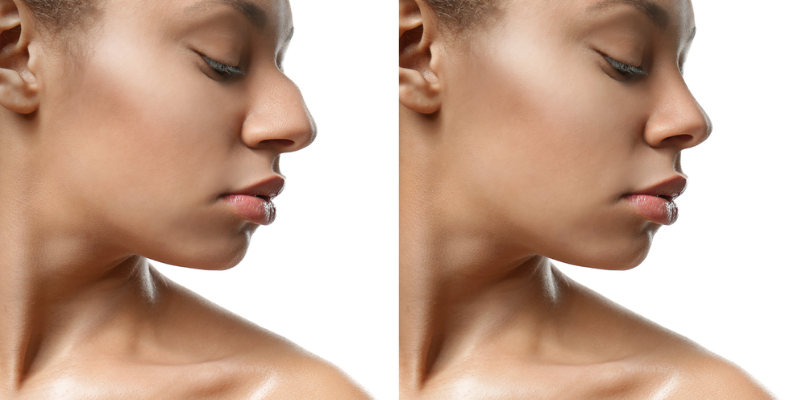Rhinoplasty Recovery Day 7
Recovery times for rhinoplasty can be different. What happens during rhinoplasty recovery day 7? Rhinoplasty is surgery that changes the size, shape, or function of the nose. It is also called a “nose job.” Having rhinoplasty can be medically necessary, like when you have trouble breathing or need to fix damage from an accident, or you can choose to have it for cosmetic reasons.
If you’re thinking about getting a nose job, this article will tell you what to expect week by week as you heal. Don’t go into rhinoplasty surgery without knowing what to expect, how you will feel, and what you will look like as you heal.
What Happens During Rhinoplasty Recovery Day 7?
How long it takes to recover from a rhinoplasty depends on the type of surgery you need to improve the look of your nose, how your body heals, and how well you take care of yourself afterward. Recovery from a nose job can take up to a year on average, but most rhinoplasty patients completely heal in four to six months. Under general anesthesia, the procedure itself shouldn’t take more than a couple of hours, depending on how hard the work is. You will go home the same day, but for the first week or two after surgery, you will need to rest.
Your face will be wrapped in bandages, and your nose will held up by a splint. Your cheek or forehead will be taped to hold the splint in place. Since blood can come out of the nose, gauze is often also taped under the nose.
During the first week of recovery, you can expect to be sore and feel pain. The under-eye area and the area around the nose will swollen and look bruised. By keeping your head up while you rest, you can reduce swelling and pain. At least for the first week after surgery, you should stay home and rest. You shouldn’t do anything too hard. To recover from a nose job, you must rest for the first few days.
First 2 Weeks After Rhinoplasty
Most people who get rhinoplasty will have their splint and bandages taken off at their second week follow-up appointment with their plastic surgeon. In the second week after a rhinoplasty, there will still be some bruising and swelling.
After the first week, it’s up to you and how you feel about how you look if you want to go back to work or go out in public. Even so, you should still avoid doing hard work or lifting heavy things, and if that’s part of your job, you might want to take more time off.
A Month After Rhinoplasty
Most of the swelling and bruises should go away after the first two weeks. After a month, most patients will feel less pain from the surgery and the healing process. Most likely, the rhinoplasty will give you many of the results you were hoping for. Even if some of the swelling stays, it might only be noticeable to you and your family.
Your doctor will tell you if you can do normal things again or if you should still stay away from strenuous exercise. During the second and third month of rhinoplasty recovery, your face will start to feel and look like it did before, but with a better nose shape, size, and/or contour. Be aware that the tip of your nose is very likely to swell, and that the swelling could last for up to a year.
Some people with rhinoplasty have a small amount of swelling at the tip of their noses for up to a year. This is especially true if your nose has thick skin. Once the swelling goes down, you will be able to see the final results of your rhinoplasty.
How To Minimize Recovery Time After Rhinoplasty?
There is temporary rhinoplasty that doesn’t involve surgery and has little to no downtime. But there will always be a time to heal after a surgical rhinoplasty.
Procedures that are more invasive, like rhinoplasty for a crooked nose or rhinoplasty for a wide nose, will take longer to heal because the surgeon will have to make more changes to the bone, cartilage, and skin of the nose. If you are older and have one or more health problems, this could make it take longer for you to get better. In general, younger patients heal faster, unless they have health or lifestyle problems. Using caffeine, alcohol, and tobacco all the time can also make it take longer for your nose job to heal.
Rest for the first two weeks and do what the doctor says otherwise. Set realistic goals for when the first bandages come off. For the first few months, take it easy and let your body heal. Accept that the final result might not be certain for up to a year. Keep in mind that you will soon look the way you want to.


